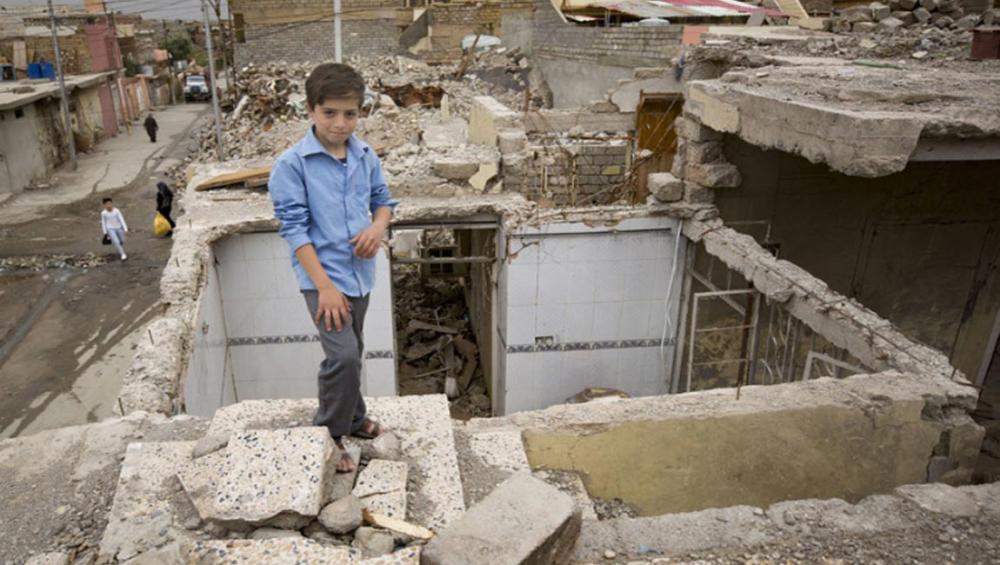Just Earth News | @JustEarthNews | 14 Feb 2019, 10:34 am Print

:NA
New York: Despite some positive developments following years of brutal conflict, Iraq is gripped by political stalemate and a continued humanitarian crisis that is hampering the stabilization of the country, the head of the UN Assistance Mission in the country, (UNAMI), Jeanine Hennis-Plasschaert, told the Security Council on Wednesday.
Special Representative Hennis-Plasschaert started her first briefing to the UN body since taking up her post, by explaining that although a new Prime Minister-designate has been nominated, the Iraqi Government remains incomplete due to “fierce disagreements among political parties”, with four top positions still vacant, including the key portfolios of the Interior, Defense, and Justice ministries.
Moreover, multiple parliamentary sessions have been “adjourned, interrupted or boycotted” which has delayed substantive work from taking place.
Civilians continue to bear the brunt of the challenges
“The people of Iraq are bearing the brunt of the political stalemate… at a time when it is critical to address their needs and demands for better services,” she stressed, adding that further delays would have “significant repercussions” for “the stability of the country”.
She called on politicians in Baghdad “to overcome political infighting and to demonstrate that political compromise can prevail in the greater interest of the Iraqi people,” noting also that there are “excellent and experienced Iraqi women well-qualified to perform the job”.
Hennis-Plasschaert called on the Iraqi Government to “take quick measures to reform its security sector and act resolutely against these groups and their activities.”Insecurity remains a major concern, as regular attacks by ISIL extremists – known in the Arab world as Da’esh – continue and as other armed groups are “expanding their economic and social control in Iraqi daily life”.
As a result of years of conflict, the international humanitarian effort to support Iraq remains critical. The 2019 Humanitarian Response Plan seeks $700 million to provide basic assistance to 1.75 million vulnerable Iraqis, including protection services, medical care, food support, explosive clearance, and longer-term recovery activities.
“While significant efforts are underway to reconstruct infrastructure and restore basic services it will take many years and billions of dollars to rebuild the country. And Iraq will undoubtedly need the continued attention of the international community to make this transition successful and sustainable,” the Special Representative said.
Positive developments
In her briefing Ms. Hennis-Plasschaert noted some recent positive developments such as the adoption of the federal budget for 2019 which includes important allocations for the delivery of basic services, and efforts made by the Government to combat corruption.
“The fight against corruption will not be an easy one, but it is a much needed one as corruption is vast and pervasive at all levels in Iraq. It is a much-needed fight in order to revive public-trust and to facilitate the provision of basic services,” she said.
Other highlights included a recent agreement between the Federal Government in Baghdad, and the Kurdistan Regional Government, based in Erbil, to unify custom duties. “This decision is an important step in reinforcing Iraq’s unity,” she explained adding that “a speedy implementation of this agreement should now be a priority for both sides”.
Priorities moving forward
The Independent High Electoral Commission (IHEC) has formally recommended that Provincial Council elections take place on 16 November, she said, noting that UNAMI “will continue to provide the technical assistance and support” IHEC needs. “However, in preparation for these elections a number of steps will need to be taken urgently by the Government of Iraq and the relevant institutions.”
She also highlighted as a priority the need for “a more consistent adherence to international standards of due process and fair trial.”
“An impartial and transparent process of judicial accountability – for the gross violations of human rights by ISIL – will prove crucial in rebuilding peaceful coexistence and social cohesion,” she insisted.
Closing her briefing, Hennis-Plasschaert said that “the atmosphere of despair during the period of ISIL occupation has given some way to hope and optimism for the future in Iraq. However, one cannot shy away from the fact that the road to well-deserved long-term stability will be long and far from easy”.
Noting that great determination, political will and national ownership will critical for success, she stated that support from the international community will continue to be “of paramount importance”.
- Pakistan: Police recover two bullet-ridden bodies from Balochistan
- IDF strikes Hezbollah targets in Lebanon after projectile fire toward Northern Israel; 31 killed
- Pakistan: Armed gunmen kidnap 14 workers during coordinated raids in Balochistan
- ISIS-inspired plot foiled in UK: Two men get life sentences for targeting Jewish community
- India rejects allegations, urges Pakistan to tackle its ‘home-grown ills’





-1763561110.jpg)
